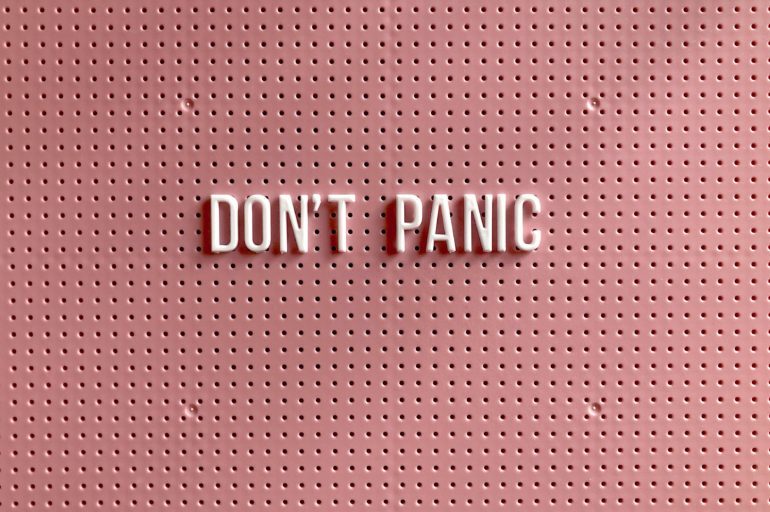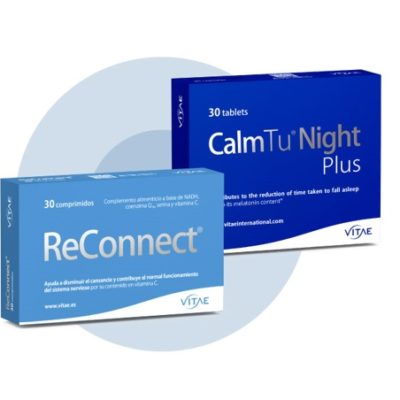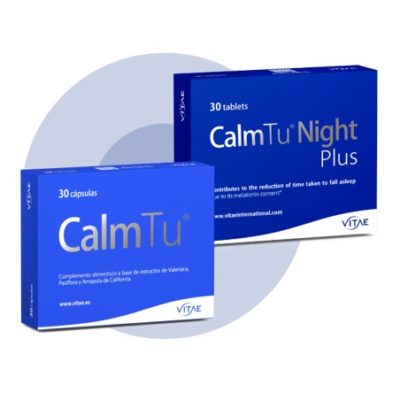For some time now, there has been an increase in the use of the word “anxiety”, but what exactly is anxiety? How can we know if we suffer from anxiety? Does a specific anxiety attack make us anxious? All these questions and more are answered by the psychologist Toni Mateo, trained in cognitive-behavioral therapy and specialized in anxiety.
- As I said, it has become very common to hear the word anxiety. Would you say that it is a common situation/issue in today’s society?
Studies indicate that more and more people in this country suffer from anxiety. This is also demonstrated by the fact that anxiety disorders are one of the most common searches on the internet. Students and the working-age population, especially those looking for their first job, are the population groups where anxiety is most widespread, especially in the case of women. The excess workload and the lack of free time and rest lead to a dynamic that can trigger these types of problems. If you add to these two factors the care and raising of children, it is very likely that you will end up falling into an anxiety disorder.
The use of new technologies is also becoming a determining factor that favors the appearance of anxiety. These technologies allow employers to be always accessible and receive calls and emails outside of working hours. The ability to disconnect from work commitments and obligations at the end of the day is a fundamental resource to protect yourself from anxiety today.
- But what exactly is anxiety?
Anxiety is a natural mechanism that has allowed us to survive as a species for thousands and thousands of years. It is a set of feelings and reactions that put us on alert, that tell us that something bad can happen and that something must be done about it. Therefore, it is a protection mechanism that warns us of some danger that goes against our interests, our objectives or simply our well-being.
The problem appears when that mechanism suffers some kind of imbalance and then is when anxiety turns against us. It becomes self-destructive and harmful. What should protect us becomes a danger. This is when we talk about an anxiety disorder.
- Why does someone end up suffering anxiety? What causes it?
Currently it is quite easy to suffer from anxiety. The rhythm of life we follow is a constant source of stress, and stress is a precursor of anxiety. To this must be added the little information at an educational level that there is about the emotions, as well as the lack of knowledge about how anxiety works. By this, I mean that many people have developed a way of understanding life that facilitates the appearance of anxiety. The worst of all is that they are not fully aware of what is happening to them and consider it normal, making a chronic problem.
- Are there different types of anxiety?
As I have said above, there is a healthy anxiety that allows you to face a difficulty and handle complex situations. It is the restlessness, the justified fear or the alert that we feel when we have an important meeting or presentation. It is proportional in time, duration and intensity.
On the other hand, we have that harmful anxiety that causes the opposite effect. It is the feeling of loss of control that leads to dealing with such situations in a negative way. In addition, it is often triggered by irrational fears and unrealistic thoughts about things that are not happening and probably will not happen. It occurs in a totally disproportionate way, interfering with daily functioning and persists beyond the stimuli that caused it.
This negative anxiety is what we call an anxiety disorder and it takes different forms:
- Generalized anxiety, recurring and unrealistic worries, accompanied by very intense symptoms of anxiety
- Panic attacks, with a sudden onset in the form of intense episodes of fear and a feeling of loss of control
- Phobias, related to specific stimuli or specific situations that are experienced with panic;
- Obsessive-compulsive disorder, characterized by intrusive and difficult-to-control thoughts, accompanied by strong anguish that the person tries to neutralize by developing compulsive and repetitive behaviors
- Post-traumatic stress, as a consequence of a traumatic experience, in which a strong physical or psychological damage has been suffered and becomes a constant issue
- How can we perceive anxiety? Can it have different faces?
Pathological anxiety affects any aspect of our life. That is, it can manifest itself both in the physical, behavioral and psychological fields.
On a physical level, the most common symptoms are sweating, dizziness, tremors, muscle tension, headache, tingling, palpitations, shortness of breath, nausea, intestinal problems, or difficulty sleeping.
At a psychological and behavioral level, continuous worries, feeling overwhelmed, fear of losing control, concentration difficulties, restlessness, irritability, inhibition, obsessions and compulsive actions.
They do not have to happen all at once. They can appear separately or together with symptoms. In any case, they will be of considerable intensity and will be accompanied by an unpleasant feeling of dread, fear, or panic.
- How we should treat anxiety?
Cognitive-behavioral psychology proposes to treat anxiety by dismantling the irrational beliefs that sustain it. There are objective data that can easily knock down any irrational fear. An example of this is the fear of flying. There are those who have strong fear of flying and at the same time there are statistics indicating that flying by plane is the safest transport, with a serious accident every 2 million flights. In comparison, traveling by road, or even crossing the street, is far more dangerous.
It would be great if by rational information, anxiety would decrease or disappear. The reality is somewhat more complex. Anxiety defends itself and makes us fall into traps. Select and falsify information to present us with scenarios that reinforce these irrational fears. In addition, the symptoms that accompany these fears are very intense and exaggerated, totally disproportionate, and lead us to believe them. Also the lack of knowledge about how anxiety works plays on their part, creating a state of confusion that does not allow us to properly process the information in front of us.
Managing anxiety so that it does not become a problem is directly related to one’s ability to develop critical thinking. Questioning your own thoughts, putting them to the test and passing some kind of “quality filter” is something that must be worked on an everyday basis. The same must be done with the multiple external influences that seek to condition our opinion, values and preferences. The ability to analyze, the proper interpretation of reality, logical reasoning, reaching conclusions and being able to put them to the test are the bases to discard these irrational fears. This must be accompanied by resources and self-care, such as a satisfactory social life, leisure and rest time, emotional communication, healthy habits, etc.
- Do you think that diet and physical exercise also a key role in treating anxiety?
Anxiety can seriously alter our daily lives. This means that it can interfere with our habits and routines. Food is one of the areas that can easily be harmed. A state of anxiety can lead to inattention to the diet and drag us to make options that, apart from not benefiting us, will surely promote and maintain that state of anxiety.
Basic dietary guidelines to follow to keep anxiety under control are:
- Protein at breakfast, with the idea of maintaining adequate glycemic indexes;
- Complex carbohydrates, since there are studies that indicate that they favor the increase of serotonin production. Examples of this are oats, quinoa, and whole grains;
- Adequate hydration;
- Reduction and avoidance of alcohol and stimulant drinks;
- Fruit, fresh vegetables, nuts, and foods rich in omega-3 and magnesium.
When it comes to exercise, it is essential in order to regulate stress and anxiety. Maintaining an adequate level of activity and practicing regular exercise causes our body to release endorphins, reduce cortisol levels and increase serotonin levels. On a psychological level, setting goals and achieving them reinforces self-esteem, improving mood. Physical exercise is a simple and inexpensive resource to clear your mind, disconnect and renew yourself.
- Finally, are you in favor of supporting the treatment with food supplements in order to reduce the level of activation?
Any help is good when it comes to fight anxiety and food supplements can be a great ally.
On one hand, there are supplements that help to regulate the physical part of anxiety by calming our body, for example, supplements containing valerian, passionflower or California poppy. It is also interesting to look for supplements that provide melatonin and magnesium, to help the muscles to relax and favour sleep induction and quality.
On the other hand, there are supplements that facilitate cognitive function. These include those that provide antioxidants, such as NADH and coenzyme Q10.
In any case, it is important to mention that food supplements are an extra help, but a proper intervention for an anxiety disorder requires a professional psychologist to treat, guide and supervise the process.










